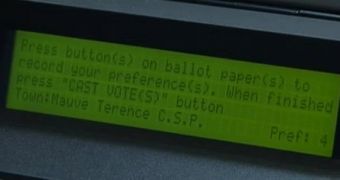The Irish government revealed its plans to sell or dispose a number of 7,000 electronic voting machines after a group of Dutch hackers proved that their firmware could be easily replaced with a potentially malicious one.
Ireland’s Minister for the Environment Phil Hogan says that the machines are about to be set up for sale, and if no one wants to purchase them, they’ll be disposed of as waste, RTE reports.
The country’s Minister of Finance declared them worthless and the only hope for someone buying them is with the purpose of decorating Irish-themed pubs around the world.
The e-voting devices were purchased in 2002 from Dutch firm Nedap and they were utilized on a trial basis the same year in three locations, Ireland paying around 55 million EUR ($62 million) for them, amount which includes how much was spent to store them.
Officials planned to introduce them on a national level in 2004 and a special commission was established to examine the system.
The Independent Commission on Electronic Voting and Counting at Elections found there were some minor security and usability enhancements that had to be made, but in October 2006 a Dutch hacker collective showed that similar machines could be easily modified by replacing the machine’s EPROM, that contained the original firmware, with other EPROMs.
In October 2010, after the verdict was given that the costs to make the necessary improvements were too high, Ireland’s Prime Minister Brian Cowen announced that they would be disposed of.
Electronic voting machines have also caused security concerns in September 2011 when the Vulnerability Assessment Team (VAT) at the U.S. Dept. of Energy's Argonne National Laboratory in Illinois revealed that by using $10(€7) worth of electronic components, the machine could be altered.
Researchers proved at the time that man-in-the-middle attacks could be launched and the votes could be tampered with.

 14 DAY TRIAL //
14 DAY TRIAL //